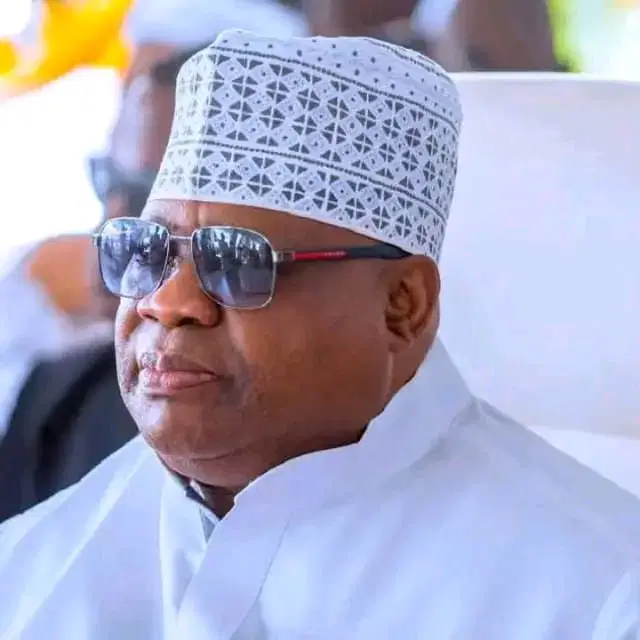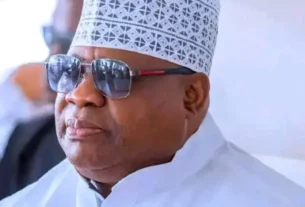Say he descends from Oduduwa’s paternal line, Oluwo of Iwo from maternal line
By John Dike, Osogbo
Osogbo royal families have asked Osun State Governor Ademola Adeleke to urgently restore the Ataoja of Osogbo, Oba Jimoh Olanipekun, to his rightful fourth position in the hierarchy of traditional rulers in the state.
At a press conference held at the Ataoja’s royal home in Osogbo, community leaders reaffirmed that the Ataoja’s royal stool is paternally linked to Oduduwa, the progenitor of the Yoruba race, making him historically senior to the Oluwo of Iwo, whose lineage to Oduduwa is through the maternal line.
Speaking on behalf of the royal families, Prince Lekan Salami stated that archival records, oral history, and government correspondences all confirm that the Ataoja of Osogbo descends directly from the paternal bloodline of Oduduwa through Owa Ajibogun, the first Owa Obokun of Ijesaland.
He said, “The Oluwo of Iwo, Oba Abdulrasheed Akanbi, traces his origin to Queen Luwo Gbagida, the only female Ooni of Ife, who was a daughter of Ooni Otaata.
“Luwo’s marriage to High Chief Obaloran of Ilode, Ile-Ife, produced Adekola Telu, the founder and first Oluwo of Iwo. Therefore, the Oluwo’s connection to Oduduwa is maternal, while the Ataoja’s is paternal.”
The royal families emphasized that in Yoruba tradition, paternal descent carries seniority in royal hierarchy, making the Ataoja’s position above that of the Oluwo of Iwo.
They cited several colonial and post-independence government documents — including official correspondences dated May 3 and June 28, 1948 — which clearly listed the Ataoja of Osogbo as the fourth-ranking Oba in Osun, following the Ooni of Ife, Owa Obokun of Ijesa, and Orangun of Ila.
Prince Salami explained that this order of seniority was maintained consistently through the colonial period and the administration of former Governor Bisi Akande, until it was altered during the tenure of Governor Olagunsoye Oyinlola, a change Osogbo indigenes still regard as unjust.
He reiterated that the Ataoja’s beaded crown (Ade Are) is not a recent creation, but an inheritance passed down through generations of Oduduwa’s direct descendants — from Owa Ajibogun to Larooye Gbadewolu, the founder of Osogbo and first Ataoja.
“Our crown is our heritage, our heritage is our truth, and our truth is eternal,” Prince Salami declared. “This is not a matter of pride, but one of truth, justice, and the preservation of an ancient lineage that defines the identity of Osogbo, Osun State, and the Yoruba people at large.”
He therefore urged the state government to recognize and preserve the rightful fourth position of the Ataoja of Osogbo in the official hierarchy of traditional rulers in Osun State, describing the appeal as “a call to restore historical order, not a demand for privilege.”
“The Ataoja’s position as fourth in rank is well-documented, established by history, validated by records, and sanctified by heritage,” he said.
The statement concluded that Osogbo remains committed to peace, respect for tradition, and the unity of Yoruba royalty — but will continue to advocate for historical justice in matters affecting its royal throne and ancestral pride.





